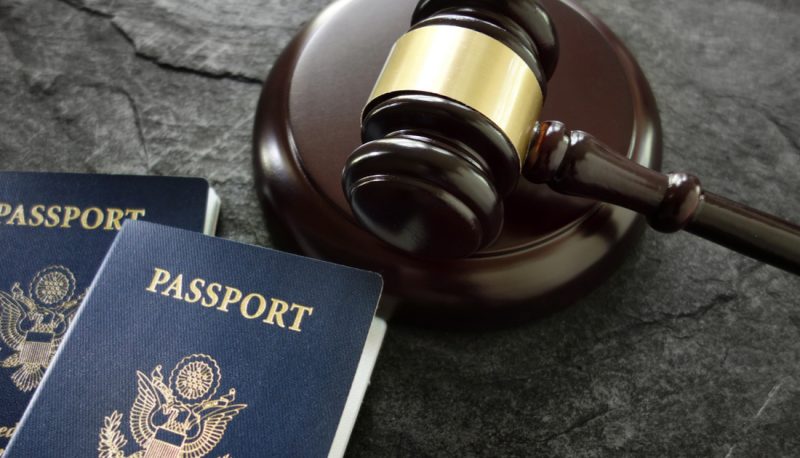“Confirmed Judges, Confirmed Fears” is a blog series documenting the harmful impact of President Trump’s judges on Americans’ rights and liberties. Cases in the series can be found by issue and by judge at this link.
Trump Second Circuit judge Michael Park argued in dissent that the Board of Immigration Appeals (BIA) should not be compelled to make publicly available its many unpublished decisions in immigration cases under the Freedom of Information Act (FOIA). The majority rejected Park’s view and ruled that an order requiring such public release is appropriate under FOIA in its February 2021 decision in New York Legal Assistance Group v Board of Immigration Appeals.
Among its other work, the New York Legal Assistance Group (NYLAG) represents low-income individuals in asylum and removal cases. NYLAG and other immigration advocates have found their work impeded by the fact that most decisions of the BIA are unpublished and not generally made publicly available. Although those decisions are not considered “precedential” by the BIA, they are relied on and cited by the BIA itself as well as by immigration judges and the government, and constitute “the vast majority” of the BIA’s final decisions. Such unpublished decisions, however, “are not readily available to lawyers representing clients in immigration proceedings.”
To help in its immigration work, NYLAG asked BIA to make publicly available in an electronic format all its unpublished opinions since November, 1996, and going forward. The request was based on the language in FOIA that imposes an affirmative obligation on BIA and other federal agencies to “make available for public inspection in an electronic format” its “final opinions” and orders in “adjudicated cases.” The BIA denied the request, claiming that NYLAG could only request individual documents on its own behalf and not ask that such a large category of documents be made publicly available. NYLAG filed suit in federal district court under FOIA, but the district court dismissed the complaint as a matter of law without any discovery or other proceedings, essentially adopting BIA’s position.
On appeal, Judge Gerard Lynch, joined by George HW Bush nominee Dennis Jacobs, reversed in a 2-1 decision. There was no dispute that FOIA includes the “affirmative disclosure obligations” raised by NYLAG, the majority explained, but the issue was whether the law “authorizes courts” to “enforce” those obligations “by ordering that documents be made available to the public.” Based on the text, structure, purpose, and history of FOIA, the majority concluded that “it does.”
More specifically, the majority acknowledged that most FOIA litigation asks that withheld documents be provided specifically to the party that requested them, but noted that the law’s language authorizes the courts to “order the production” of records that should have been generally disclosed to the public electronically if a specific “complainant” like NYLAG so requests. The majority explained that this conclusion was confirmed by the law’s structure and history, which demonstrated that Congress amended FOIA “to make clear” that a court can act “when an agency fails to comply with any provision” mandating disclosure, including its affirmative obligation to make some records generally available. In contrast, the majority went on, the BIA was asking the court to approve a system of “secret agency law” that “systematically limits the access to information of parties opposing the government,” directly contradicting an important purpose of FOIA, which the Supreme Court has stated should be “construed broadly.” The majority sent the case back to the district court in order to consider practical and other considerations concerning NYLAG’s disclosure request, but made clear that the lower court’s ruling dismissing the case was wrong as a matter of law.
Trump judge Park dissented. He argued for a narrow interpretation of FOIA under which the only relief a court can order is disclosure to a litigant of particular records that have been “improperly withheld” from that particular “requester.” He claimed that his view was supported by the DC Circuit, which he maintained has held that this is “the only relief available under FOIA’s judicial review provision” in two decisions.
The majority specifically refuted these arguments. In the DC Circuit’s more recent 2017 decision, the majority explained, the issue was not whether broader relief was authorized by FOIA itself, but whether it could be ordered based on the “equitable authority” of a court, which the DC Circuit rejected and was not the issue before the Second Circuit. Altho the earlier 1996 DC Circuit ruling did relate to the text of FOIA, the ruling concerned whether FOIA could be interpreted to require an agency to publish information in the Federal Register rather than simply to produce it, which the majority explained was “not directly relevant” to the Second Circuit case. In contrast, the majority wrote, the Ninth Circuit squarely addressed the issue in 2019, ruling that an agency must make generally available through electronic means a series of documents concerning inspections related to animal welfare, and provided “persuasive” authority in support of the Second Circuit majority’s ruling.
This case is far from resolved in light of the remand to the lower court, and the new Biden Administration will hopefully determine on its own that the BIA should simply make its unpublished opinions publicly available. If it had been up to Trump judge Park, however, BIA would have been legally entitled to keep from public disclosure its unpublished decisions, and other agencies may have found support for maintaining systems of “secret law”, contrary to a key purpose of FOIA.

